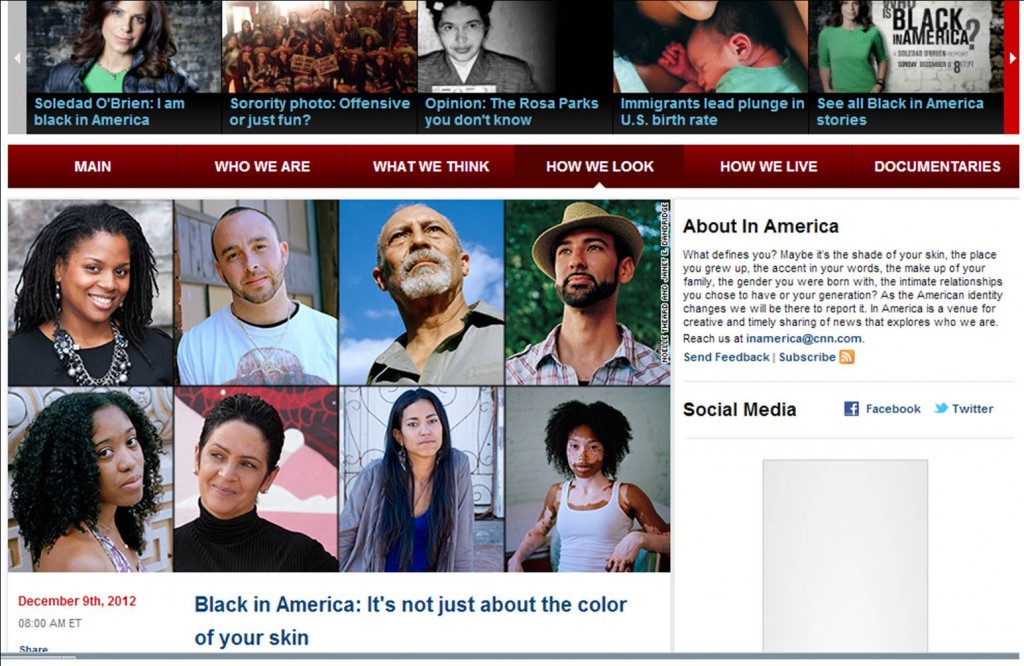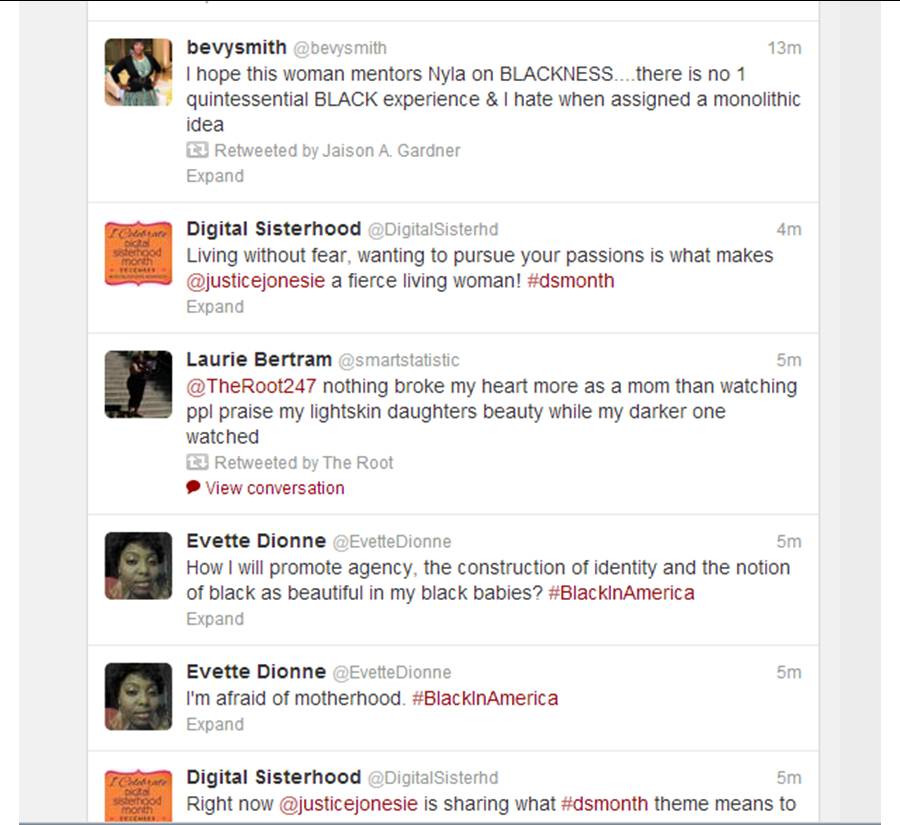I was going over a long list of possible topics to blog about when I jumped on Twitter to procrastinate and saw the above tweets in my timeline. Evidently, I was missing the latest installment of CNN’s Black in America series.
I’m not too sorry about this, as I don’t remember anything profound coming from the series since its inaugural edition and I’m accustomed to being out of the loop since I don’t have cable. But Evette Dionne’s tweets jumped out at me because of some conversations I had last week that drifted to black people’s expectations of themselves.
We’re often quick to assume the products, practices, principles, etc. of black people are inferior to those of other races. Church starts late because we run on “CP Time.†(BTW, I learned in the multicultural mecca that was Washington University that everyone of color has this term for people of their race or nationality. There’s Korean time, Puerto Rican Time, Diwali Time, Israeli Time. The Germans are allegedly the only punctual people on earth.) A caterer arrives with cold food and black people don’t know how to run their businesses. One lawmaker mishandles some funds, and it’s, “Black folk just won’t do right.â€
Even rational, intelligent, people, who are themselves amazing and who should know better make this generalization. A friend and I have discovered that in the online dating world, the sites with the most black people on them are considered the “ghetto†(or ratchet, or hood, or whatever the term might be now) sites, the places where, “Shawty what cho name iz?†will inevitably follow an electronic wink. If that’s not how you like to be approached, you trade up to where the white people wink.
But that’s the consideration even when there’s no evidence. I once shared with some women at a party that I had been on a dating site that’s specifically for black people. “Oh, that’s the ghetto one,†one said, and the rest immediately were convinced. I wish I’d had the thought then to ask her how she knew it was ghetto when she had never tried online dating before; none of the women had. The site being ghetto wasn’t my experience, and the person who suggested the site to me is as far from hood as I could imagine any black woman being. Yet one rumor of the ghettoness of a site specifically for black people was enough to convince them to never try that one, even if they weren’t married by 26. Ah, kids.
My friend acknowledged he’s gotten some, “Shawty what it do,†greetings and wondered if people on the “ghetto†sites approaching you in Beyoncé-speak do so because they think they have to, because that’s the ghetto site, so they should be ghetto. If you wrote descriptions and sent greetings in Standard English, would other black people think you’re a snob or—gasp!—not black enough? Would they banish you to a site where they think you’d fit in more? And what if you find you don’t assimilate well enough in those places?

From CNN’s “In America” blog
I don’t yet have an answer for Evette’s question, “How will I promote agency, the construction of identity and the notion of black as beautiful in my black babies?â€Â I gathered from Twitter that the opening segment of Black in America was about how Black Americans use exterior traits to identify someone as black and then embrace or reject that person’s color and features. Evidently, some are convinced a dark exterior is ugly. But there are also some who are convinced the ugliness is inside and spread throughout most of us of darker hues. That inner beauty identity is something we all have to learn to promote.

